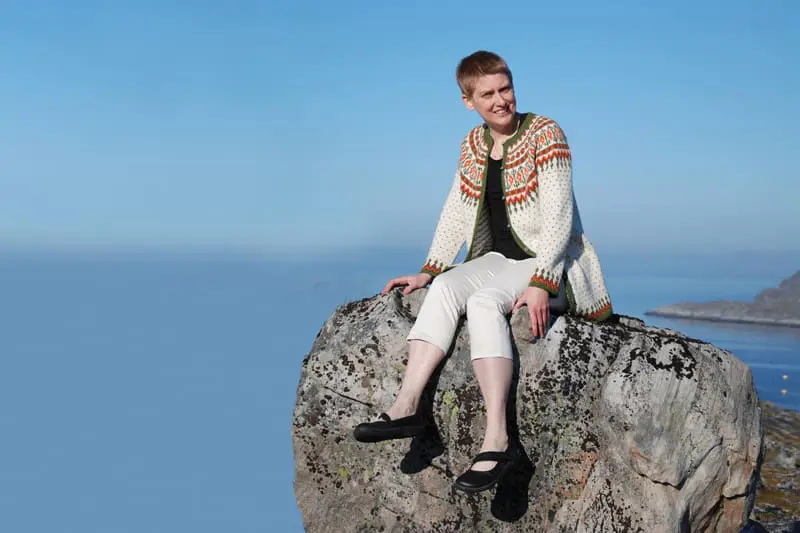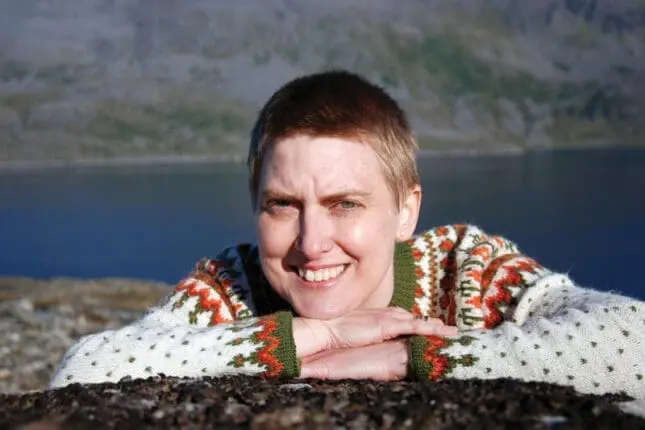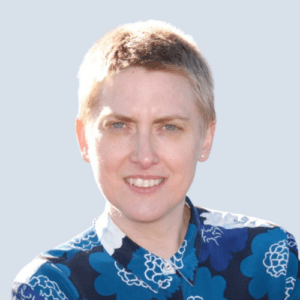The ancient arctic port of Hammerfest, Norway, is known as the northernmost town in the world. It sports gravesites dating back to the Stone Age, a vast rural district, and a town center regularly overrun by reindeer. Its population, which includes indigenous Sámi peoples of Scandinavia’s north, works out to about five inhabitants per 12 square miles.
One of those inhabitants is Malin Fors, a Swedish psychologist, psychoanalyst, and instructor, who’s lived and worked in Hammerfest for 14 years. Fors recently bought a home with her wife, and unlike fellow therapists she’s encountered who journey to Hammerfest for short stints of government-sponsored work as clinicians or trainees, she has no plans to leave.
Years of working with a rural population have clarified urban bias for Fors, and she’s begun writing about how ideas of urban exceptionalism affect not just the larger society’s definitions of a life well lived, but the practice and theory of therapy itself. Her open-access paper on what she calls “geographical narcissism” has struck a nerve, garnering both academic and popular attention.
Why does urban tend to equal normal in psychotherapy?
When you live in a rural setting, you begin to recognize that while we’re used to talking about common bases for discrimination—like sexuality, gender, class, race, and religion—we rarely address rural–urban tension.
The main psychotherapy institutes and universities in Norway are in the big cities. I’m the only psychoanalyst in the whole town of Hammerfest. Once I gave a lecture at a main, Oslo-based psychotherapy institute and someone said to me, “You seem talented. Why do you live in Hammerfest?” As if smart people can’t live in rural areas. As if this was my second choice.
I always answer that question the same way: I moved here because even though I’d been offered four other jobs, it was the best career opportunity. There are so many undiscussed positives about working in rural areas. You learn the capacity to be flexible, you’re valued and heard, and people depend on you.
But we idealize urban centers as the place where truth is circulating. Urbanism seems to define what’s normal and what’s abnormal.
I’ve met so many patients here in Hammerfest that haven’t moved from home as adults. They might live together with their parents-in-law. A lot of families might share cars, or have cabins together. Maybe they’re all invested in the family business.
At first, I thought this was immaturity, as if individuation was a step on the way to being an adult. To me, it was as if these people were almost borderline structured, that they didn’t have their own identity. I mean, how could you not move away from home?
And then I realized that all these people couldn’t have a personality disorder. So maybe there’s something wrong with the theory of individuation itself. It was then that I started to notice that all the other urban conceits about being independent are often not true either. Sure, people leave home and go to Harvard, but they don’t always pay for that themselves. They’re still connected to their parents.
But, of course, biases of rural people being “less than” help feed an urban mindset. You’ll see that the literature about rural psychology often has a problem-focused way of describing things: too much chlamydia, or low IQ, or too much religion, or crazy people. But they never describe the opposite. They never ask, What’s the urban problem?

What makes rural work different?
I’ve begun to feel it’s a form of ethics to choose to work where you really matter. For example, a dental team here works with people with odontophobia, and I’m the only psychologist within a two-and-a-half-hour driving distance with a private practice.
When the team called and said, “We need a psychologist to do assessments for odontophobia,” I said, “Well, you have to ask someone else. I don’t do CBT,” which is a common treatment for odontophobia.
They called again and said, “Please. We have no one else to ask.” I turned them down again, explaining it wasn’t my field. They called me a third time. I finally felt like if I didn’t do it, no one else would. It turned out I liked being able to help patients who were in such pain; some hadn’t been to a dentist in 20 years. It felt very meaningful.
This is the kind of thing that wouldn’t happen in an urban area. In a rural setting, you always have to be in touch with your deficits or incompetencies and still learn to say, “Yes, I can do it, because no one else can.” Then you’ll likely discover it isn’t so hard to learn what you need to do to help certain people after all.
I learned odontophobia is heterogeneous. Some people are simply afraid of pain, but others have been traumatized by bad dentists—which is also a rural–urban issue. A special form of rural odontophobia developed here because of a combination of a lack of trained people and a lack of control. Dentists who couldn’t get a job anywhere else would come here. Some were drunk while they were working; some worked without providing pain relief.
When you’re part of a community that needs your help, there’s a lot of pressure to learn something new and provide that help. It can be humbling. But I now think there’s a sort of beauty in that professional vulnerability—a true sense of being human, rather than just used for your professional skills. I was educated just to use my professional skills—which is a problem in the field.
Should therapists have a duty to the client and the community?
All the professional ethics literature for psychologists focuses on the relationship between the therapist and the patient, and on what you should or shouldn’t do. But little has been written about the duty to help the community—the duty to expand your knowledge, or to try to help if someone else can’t, to have a big umbrella. This is because of the urban idealization of narrow knowledge. You can become a specialist in narrow areas, and then you think you’re superior to the rural generalist, who’s never, ever, an expert.
Of course, it can sometimes be frustrating working in this rural generalist way, because, for example, there will always be someone who knows an aspect of your work better than you. But more and more, I’ve come to value the concept of good enough. Sometimes our urban clients are on a waiting list for six months for an expert in eating disorders, or ADHD, or insomnia, when they could’ve met with someone in two weeks’ time who probably would’ve helped them well enough.
If you’re experienced in seeing different kinds of clients, then you’re humbler and more open to being trained in different ways. And in rural settings, you have to have several types of strategies at your fingertips, or at least colleagues in different fields you can turn to.
I was humbled working with the odontophobia patients. They taught me so much about CBT, but also how psychoanalysis could be useful when doing exposure therapy, and how helpful concrete interventions are. Several of those patients had been sexually abused or otherwise traumatized. But tooth pain is some of the worst pain you can have, and it’s impossible to do trauma therapy if you’re in so much pain. Some have had the pain for years, and it was stunning to see their gratitude when they suddenly felt no pain. I still feel ashamed about turning the team down twice. What arrogance!
Some rural settings are home to what we might call drive-by therapists, who stay for a practicum or live far away and pop in periodically. Do you see this as problematic?
Part of the urban–rural problem is the notion of rural areas as places where people are crazy. They’re thought to be suicidal or lonely or uneducated, or to be survivors of so much sexual abuse. The description of people in rural areas is always a tragic one, but it leaves out the other side of the story, which is urban colonization and exploitation: how the rural world is used as a tourist attraction, or for brief work opportunities when you’re just starting out in your career before moving on to “better” places.
Countless people who’ve come to work in Hammerfest had all their education paid for by the local hospital, including specializations and doctorates, and then they don’t work a day after the exam. They just move on, and they don’t give back. It’s upsetting.
Then there are therapists who live somewhere else and travel here to work a one-week-off and one-week-on schedule. These people will carry all their food from their urban home, because that’s cheaper. Or they’ll go to their dentist and hairdresser in the city, so they’re not contributing to the local community.
This sort of exploitation is a blind spot for many of us. Ultimately, we’re trained to discuss many other intersections and social categories and power issues, but we’re not used to talking about geography in this sense. We really have to start to do it.
***
Did you miss your FREE Practice Tools download this issue? Click here refresh your clinical toolkit!
Malin Fors
Malin Fors is a Swedish psychologist and psychoanalyst. An assistant professor at the University of Tromso, the Arctic University of Norway, and a lecturer at Gothenberg University in Sweden, she’s the author of A Grammar of Power in Psychotherapy and the subject of the APA training video, “The Dynamics of Power and Privilege in Psychotherapy.”













